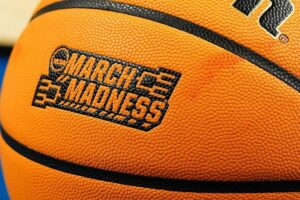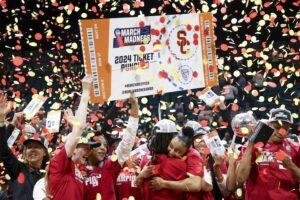US Supreme Court Halts Florida Sports Betting During Appeal Process

In the latest development of the ongoing legal battle between West Flagler and the State of Florida, the U.S. Supreme Court has issued a stay on a previous order that would have allowed the Seminoles to offer sports betting in Florida via their Hard Rock Bet brand.
Earlier in the year the plaintiffs, Florida casino venue operators West Flagler and Bonita-Fort Myer saw Chief Justice John Roberts of the federal appeals court in Washington, D.C. side with the Seminoles. However, the stay on that decision’s order, which was requested last week, has now been granted.
The fate of Florida online sports betting now hangs in the balance, as does the $2.5 billion gambling agreement between the state of Florida and the Seminole Tribe. As Florida retail sportsbooks are not yet available, Florida’s gamblers are forced out of state or to offshore sportsbooks.
West Flagler and Bonita-Fort Myer Corp own the Magic City Casino in Miami and the Bonita Springs Poker Room.
Their lawyers are currently formulating a full appeal of the D.C. Court’s mandate, which they are set to put before court within 45 days.
The Legal Tussle
While this temporary stay does not necessarily indicate the Supreme Court’s final stance on the matter, it does suggest that the Seminole Tribe’s plans to resume sports betting in Florida might be on hold for the foreseeable future.
Lawyers representing the Department of the Interior have been given until October 18 to respond to the request for an extended stay.
The Compact, which was ratified and subsequently signed into law by Governor Ron DeSantis in 2021, had far-reaching implications.
Not only did it authorize sports betting, but it also allowed the Seminole Tribe to introduce games like craps and roulette in its existing casinos. It also paved the way for the construction of new casinos on the Tribe’s Hollywood reservation, which is already home to the renowned Hard Rock Hollywood Hotel & Casino.
Following the deal’s approval, the Seminoles promptly launched sports betting services via a mobile app.
However, the deal hit a roadblock in late 2021, when U.S. District Judge Dabney Friedrich, based in the District of Columbia, ruled the agreement illegal. Friedrich’s primary contention was that the deal permitted individuals to place sports bets anywhere within the state, thereby violating federal laws that govern gambling on Native American lands.
This lawsuit was initiated against U.S. Secretary of the Interior Deb Haaland, primarily because her agency did not intervene to block the compact.
Implications for National Markets
The Seminole Tribe, in response to Friedrich’s ruling, quickly shut down its mobile betting app. Even after the appeals court dismissed Friedrich’s arguments, the Tribe refrained from reviving the app.
During the ongoing battle, Hard Rock has rebranded its sports betting app from Hard Rock Sportsbook to Hard Rock Bet, and it is now live in a dozen states.
Any decision on this case could have far-reaching consequences if a precedent is set for tribes to offer online sports betting.
To add to the changing landscape, this is not the only gaming compact between U.S. states and federally recognized tribes that has been under scrutiny recently. In New York, the Seneca’s nation’s discussions with The State of New York and Governor Kathy Hochul (D) have been controversial, to say the least.
With the current compact set to expire in December, things have to move quickly. However, now a group of commercial casino operators in New York have formed a coalition to ensure that any deal is open and involves their input.











